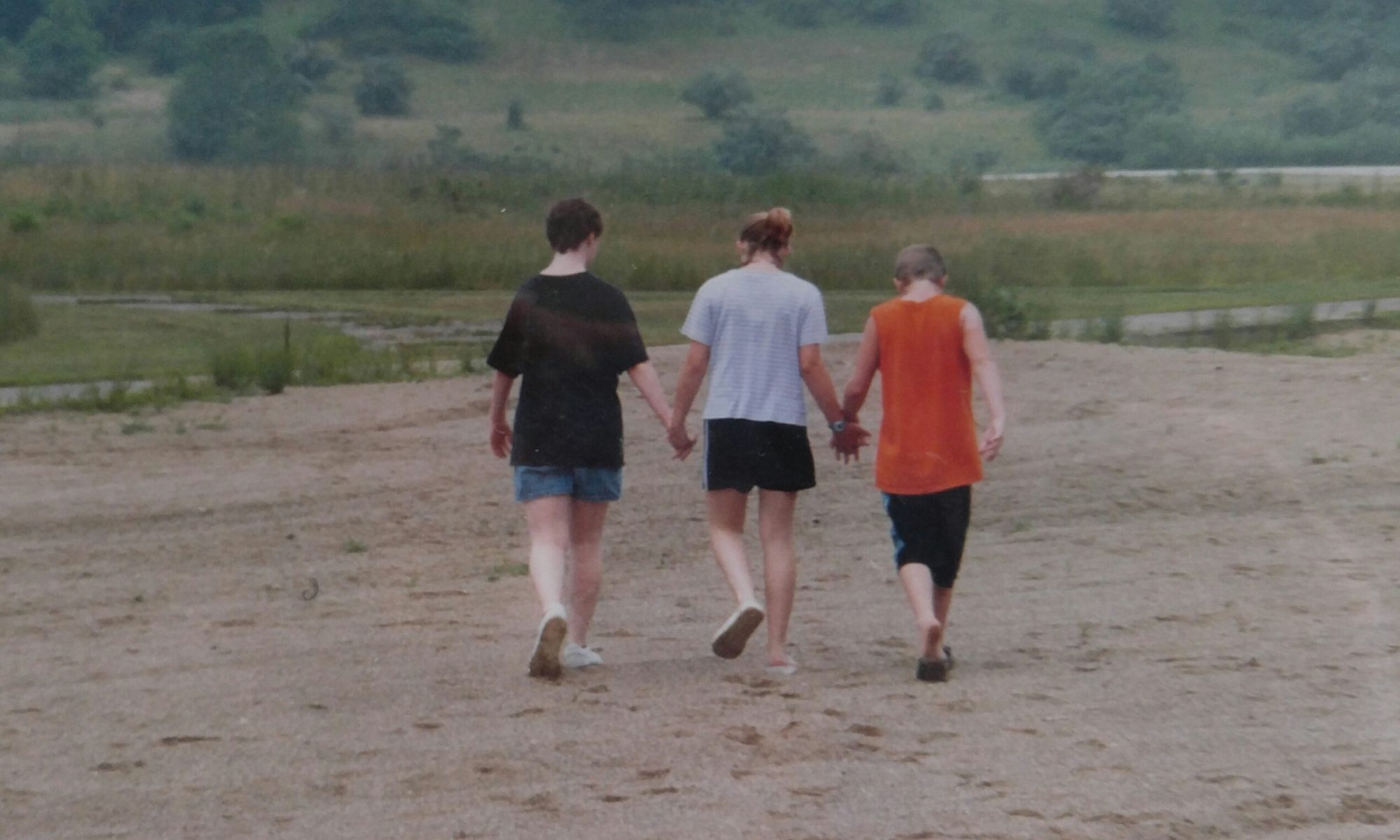
The title may throw you off a little. Before anyone thinks I’ve lost my mind and am letting Casey and Rob run the house, the expectations I’m talking about are the ones everyone has about what a happy life looks like. Autism changes your perspective, but not always quickly.
Many people seem to think a happy life is one with lots of stuff, lots of travel, lots of people around. Big, fancy parties for birthdays and expensive presents for Christmas.
Let me paint another picture for you. Yesterday was Rob’s 29th birthday. I am a birthday person. I love celebrating the person that day – not always huge things, but things to make sure that person knows they are loved and special. With autism, I had to let go of my idea of the perfect birthday and change it to fit Casey and Rob’s needs and wants.
If you ask Rob, my guess is, if he was able to say the words, yesterday was perfect to him. He got to sleep in as long as he wanted. He had his favorite doughnut for breakfast. He had nuggets and watermelon for lunch. He went to Mandy and Cory’s house.
He chose KFC for supper. He had presents that he loved (foam to cut, cards to rip, a new sign, new headphones, McD card and money) and people he loves to have cupcakes with him. He sang “Happy Birthday” to himself. And then he disappeared into his room for quiet time.
For him, it was perfect.
Before autism, I dreamed of parties with lots of kids, lots of noise, games… You know what I mean. After autism, I struggled to change my dreams into a happy reality for Casey and Rob. When they were little, their cousins came to their birthdays, but it wasn’t the same. I dreamed of friends for them.
Mandy had a few parties with friends and Casey and Rob were always included. But I wondered – did they ever wonder why she had so many friends and they didn’t? Did they feel lonely? Casey has always been more self-confident and has never seemed to care about having friends. As long as she gets to go places, she is happy. (and by places, I mean – to the park to walk or to the pool – nothing too fancy 🙂 ) Rob has always wanted the approval of others. And still does – that’s why anxiety is such an issue for him.
Autism will change your idea of what is fun, too. If you let it, autism can be an amazing teacher. Living with it will show you that what kind of car you drive isn’t important, as long as it gets you where you want to go. It will teach you that new and different foods aren’t that important and that there is comfort in sameness. Autism will slow your life down. You will learn to love and brag about the smallest steps forward your child takes – and you will appreciate those steps more than many “typical” parents will, simply because you know the struggle it took to get there.
My expectations of huge birthday parties has changed. Holidays are different than I thought they would be when I had kids. I don’t take long vacations anywhere. I don’t have a date when I will be “free” and the kids living on their own. I know every one of you has dreams for your child – expectations you planned on. Maybe you thought you would be sitting in the stands watching your child play football. Maybe you thought your child would take center stage in a musical. Don’t give up those dreams, entirely – just adjust them. I constantly tell people they have no idea what life will be like for their child. You simply can’t know. You do your best with the information you have and you move on.
I never want you to give up on your child. Push them to try new things – to look away from the iPad – to taste a new food – to wear a new shirt. Small things add up quickly.
But – I also don’t want your expectations of what life would be like for your child to get in the way of what an amazing life you can have with autism. Autism is tough – you will never hear me say it’s easy. There are days you will want to cry and scream and give up. I know that. But – there is something good in every day, if you can stop the tears long enough to really look. Change your expectations of what a happy child looks like and you may see that your child is very happy right now. And if your child is happy, you have done a wonderful job as a parent. Pat yourself on the back!



